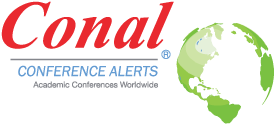Submission on or before: April 04, 2025
Exclusive 15% Discount for Early Submissions
Attend in Person or Remotely
Submit your abstract, short, or full paper by April 04, 2025 and enjoy a 15% discount on the submission fee. This initiative aims to encourage diverse international participation and ensure a rich collection of research from across the globe
TIM’25 Conference:
World Conference on Transport Research 2025: Advancing Innovation for Future Mobility TIM’25
Venue: Cambridge City, England, United Kingdom.
Date: From November 18, 2025, to November 20, 2025
TIM’25 accepted papers will be submitted for publication by Elsevier Science in the open-access Procedia Computer Science series online. Procedia Computer Science is hosted by Elsevier on www.Elsevier.com and Elsevier content platform ScienceDirect (www.sciencedirect.com) and will be freely available worldwide
Who Should Attend?
- Researchers and Academics: Scholars and researchers in the fields of artificial intelligence, machine learning, knowledge engineering, data science, robotics, and related disciplines would find the conference valuable for sharing their latest research findings, networking with peers, and exploring collaborative opportunities.
- Students: Undergraduate and graduate students pursuing degrees in computer science, engineering, mathematics, and other relevant fields can gain insights into cutting-edge research and industry trends, interact with experts in the field, and potentially discover opportunities for internships or research projects.
- Practitioners and Professionals: Professionals working in industry sectors such as healthcare, finance, manufacturing, transportation, and urban planning, where intelligent knowledge systems and engineering applications are increasingly utilized, would find the conference beneficial for learning about innovative technologies, best practices, and real-world case studies.
- Educators and Trainers: Educators responsible for designing curricula and delivering courses related to artificial intelligence, machine learning, and engineering applications can gain valuable knowledge and resources to enhance their teaching methods and update their course content.
- Government and Policy Makers: Representatives from government agencies, policy-making bodies, and regulatory authorities interested in understanding the implications of intelligent knowledge systems and engineering applications on society, economy, and governance can engage in discussions about ethical, legal, and societal implications and contribute to shaping policies and regulations in this domain.
Plenary Keynote SpeakersMajor speakers below, see all list on the speakers page
fffffffff
fffffffffffffff
ffffffffffffffff



